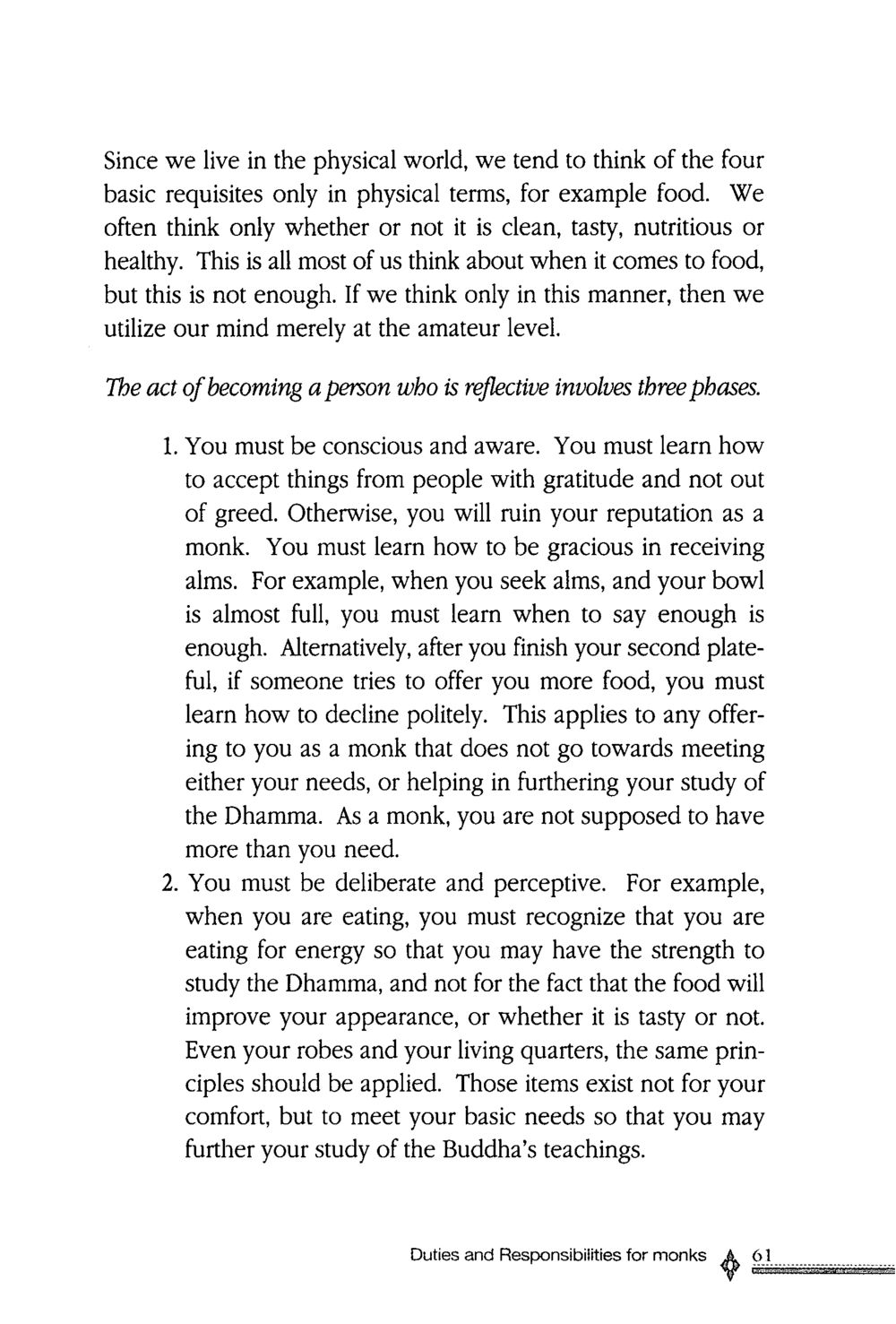Understanding the Four Basic Requisites for Monks : หน้า 62/105
The ordination : หน้า 62/105 Explore the deeper meaning of food and basic requisites in monastic life, emphasizing mindfulness, gratitude, and the purpose of consumption.
0 ครั้ง

สรุปเนื้อหา
This text guides monks on how to perceive their basic requisites beyond physical terms like cleanliness and taste. It emphasizes being conscious and grateful, encouraging monks to accept only what they need and to avoid greed. The act of eating should be a means to gain energy for studying the Dhamma, not for pleasure or aesthetics. This mindset also extends to their robes and living conditions, reminding monks that these should fulfill their basic needs to pursue Buddha's teachings. The focus should be on being reflective and perceptive in all aspects of life as a monk, not just in acquiring material items. For more insights, visit dmc.tv.
หัวข้อประเด็น
-Understanding basic requisites
-Mindfulness in consumption
-The role of gratitude in monastic life
-Reflective living for monks
-Outcomes of deliberate actions









































































































